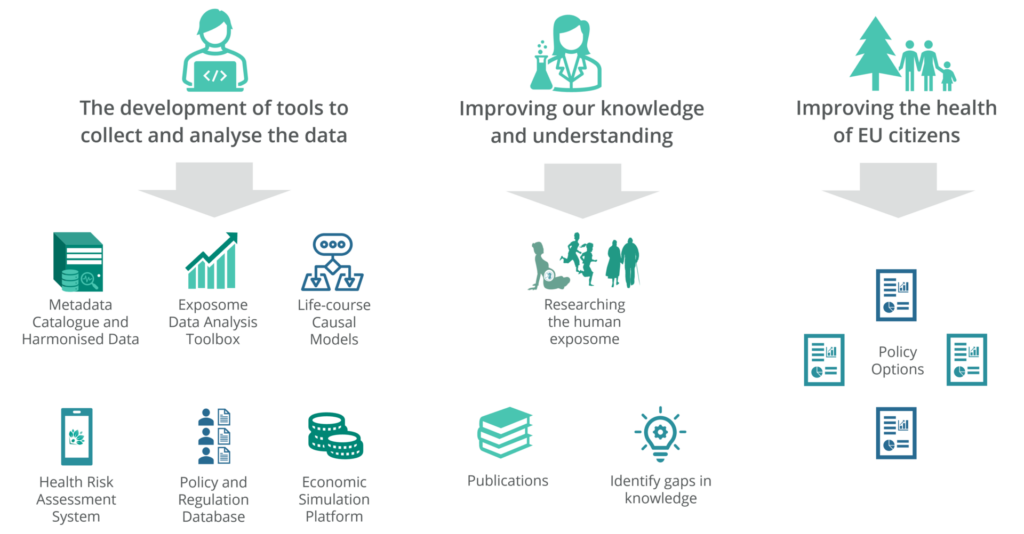Project Progress Update #2
Our contractual obligation with the European Commission (EC) means that we must periodically report project progress and financial activity. As a result, the LongITools team have been working on the second report over the last few months and we are pleased to say that this was completed, on time, at the end of February 2023. A formal project review by the EC will follow at the end of March 2023.
The key objective of the LongITools project is to understand how exposure to environmental (air pollution, noise and the built environment), lifestyle and biological factors (the exposome) collectively contribute to the risk of developing cardiovascular and metabolic diseases across the life-course. This will result in a number of key outputs:

What have we achieved so far?
During the first 36 months, we have:
- Developed the partnership to ensure cohesion across the consortium and work packages. This means we have a highly functioning consortium with great communication and opportunities to interact and collaborate.
- Worked with the ATHLETE project to develop a novel Metadata Catalogue. This online, searchable catalogue details information about the data sets available within the LongITools consortium and the institutions. To make the data interoperable, each data set has been mapped to an initial set of exposome variables to an agreed definition (a harmonised or common data model). The catalogue follows and supports the FAIR data infrastructure principles. It will continue to be refined and it is hoped will be expanded to many of the European Human Exposome Network projects, of which LongITools is also a member.
- Progressed the development of statistical, econometric and economic microsimulation models to support the research. These models are well underway.
- Planned and undertaken numerous exposome based research projects. The outcomes of this research are being translated into publications and will feed into policy options. To-date, over 50 peer-review articles have been published by LongITools consortium members, many of which received attention by the scientific community and other stakeholder groups. One of these publications is the LongITools profile paper published in Environmental Epidemiology.
- Designed and developed a first version of a personalised and precise monitoring system integrating exposome-based data from users, environmental sensors, and wearables to estimate an individual’s risk of developing cardiovascular and metabolic diseases. The App is now available in Italian App and Play stores for the proof-of-concept study participants. Small scale testing of the prototype system (15 users in Italy) will commence, in the next few months, to assess its feasibility, usability, and acceptability. The system comprises three core parts:
- A smartphone app for the user to enter exposome data (e.g., sleep habits, dietary intake), wearables (e.g., a Fitbit) and an online database and dashboard to store and display the users’ exposome data and associated disease risk.
- An environmental hub and remote sensors to gather exposure data (e.g., air quality) which securely interfaces with the online database.
- An Artificial Intelligence based predictive model which extracts and uses data from the online database to determine disease risk.
- Organised and hosted one Science Connecting Policy workshop and three Policy Forums to support our engagement with stakeholders. These events have led to the publications of blogs, input to a high-level report on air pollution and the ongoing development of an obesity white paper, together with the stakeholders.
- Contributed to the progress and activities of the European Human Exposome Network (EHEN) via the Network’s Board and its Working Groups. Since July 2022, LongITools has been responsible for the joint coordination of EHEN with the EXIMIOUS project.
In conclusion, we are continuing to make good progress and hope that the final two years of the project will provide evidence and results which can further our understanding of the exposome in relation to cardiovascular and metabolic diseases.